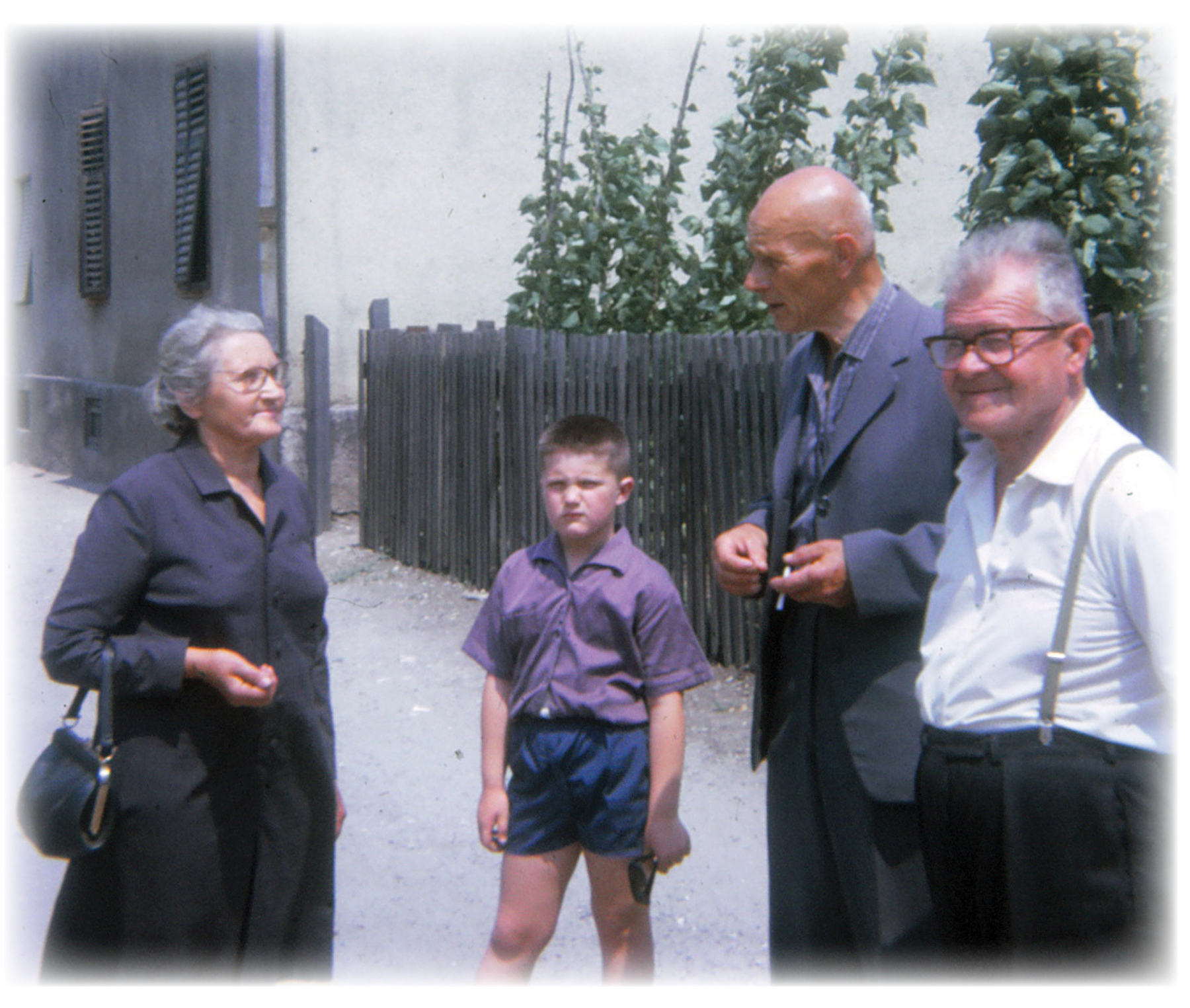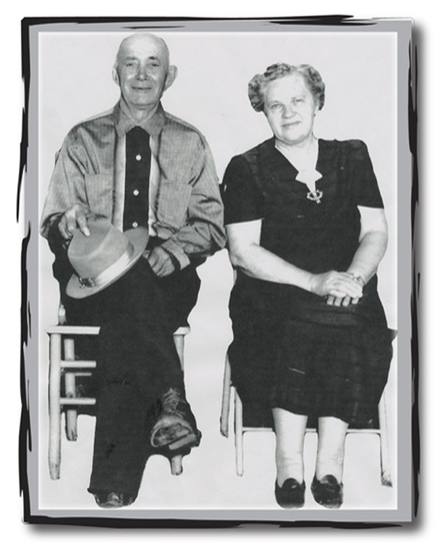Grandma and Grandpa Sovil. Grandpa adopted Grandma’s three children with Grandpa Shipka who died in the 1918 Influenza Epidemic.
.
The most beautiful people are those who have known defeat,
known suffering, known struggle, known loss,
and have found their way out of those depths.
~ Elisabeth Kubler-Ross
.
When I entered the kitchen I saw that the large table, seating at least 10 adults, was covered with linens, coffee, sugar, flour, Grandma’s canned goods, clothing, and more. It turned out that following WWII, about once a month she boxed up hard–to–find–and/or-expensive-things and mailed them to her family in Yugoslavia.
My first experience working with her on this generous and caring project was on that first solo visit where I came to love the chickens. Some years later, when I was 12, we moved to northern Minnesota and my parents bought a home just 1/4 mile from Grandma’s home. So, from there on for several years I was able to help her pack up and mail the packages every month.
She and I talked together a lot. Over time she told me how she came to be in the US and how the rest of her family – except for one brother – were still in Yugoslavia.
In 1912 Grandma left her home in Maribor for Rijeka when it was still part of the Austro-Hungarian Empire. There she boarded a ship headed to the US. She was sixteen. And alone. The 5000 mile trip starting with going around Italy, through the Mediterranean Sea, and across the Atlantic Ocean took weeks. On arrival in the US, she passed through Ellis Island and made her way yet another 1000 miles to northern Minnesota where her older brother lived.
The family had a plan to send members to the US one by one as they could afford it. However, with the outbreak off World War One, that plan ended. Nonetheless, they stayed in close communication.
She married Grandpa Shipka in 1914. With 3 children ages 3, 2, and 1, he died in the Influenza Pandemic of 1918. Grandma was sick as well. With three small children! One of Grandpa Shipka’s friends stepped in to help. There was so much talk about it in their community that they married. Together they had 7 more children. In those days, as farmers, it was good to have a large family.
Some years later yet, I visited Grandma’s family in Maribor, Yugoslavia. One special experience was when our cousin opened a large wardrobe and started pulling out things Grandma had sent her. Very touching.
When I was in my twenties, one very poignant memory I have was of driving ‘up north’ from my life in the city to visit Grandma. When I entered her home (no need to knock ever) I found her weeping as she sat in her favorite kitchen chair. She held a letter in her hands. It was from her niece saying that her younger brother, Shrečko, had died. He and his family were the ones I stayed with on my visit.
What I realized in that moment as I sat with her, was that she had held out hope for almost half a century that she would see her family again. And just months before she died, she had made plans to travel to Yugoslavia the following summer.
I was 22 at the time she died. I reflected on what her experiences had been when she was 22: Alone on the ocean crossing, alone traveling across the US, alone from her brother because he lived 80 miles away which was no small journey in those days, alone with three babies when her husband died….
 Grandma’s sister and husband (shorter) and Uncle Shrečko (taller) and his grandson in 1969.
Grandma’s sister and husband (shorter) and Uncle Shrečko (taller) and his grandson in 1969.
Bottom photo by barbara
Maribor, Yugoslavia 1969

